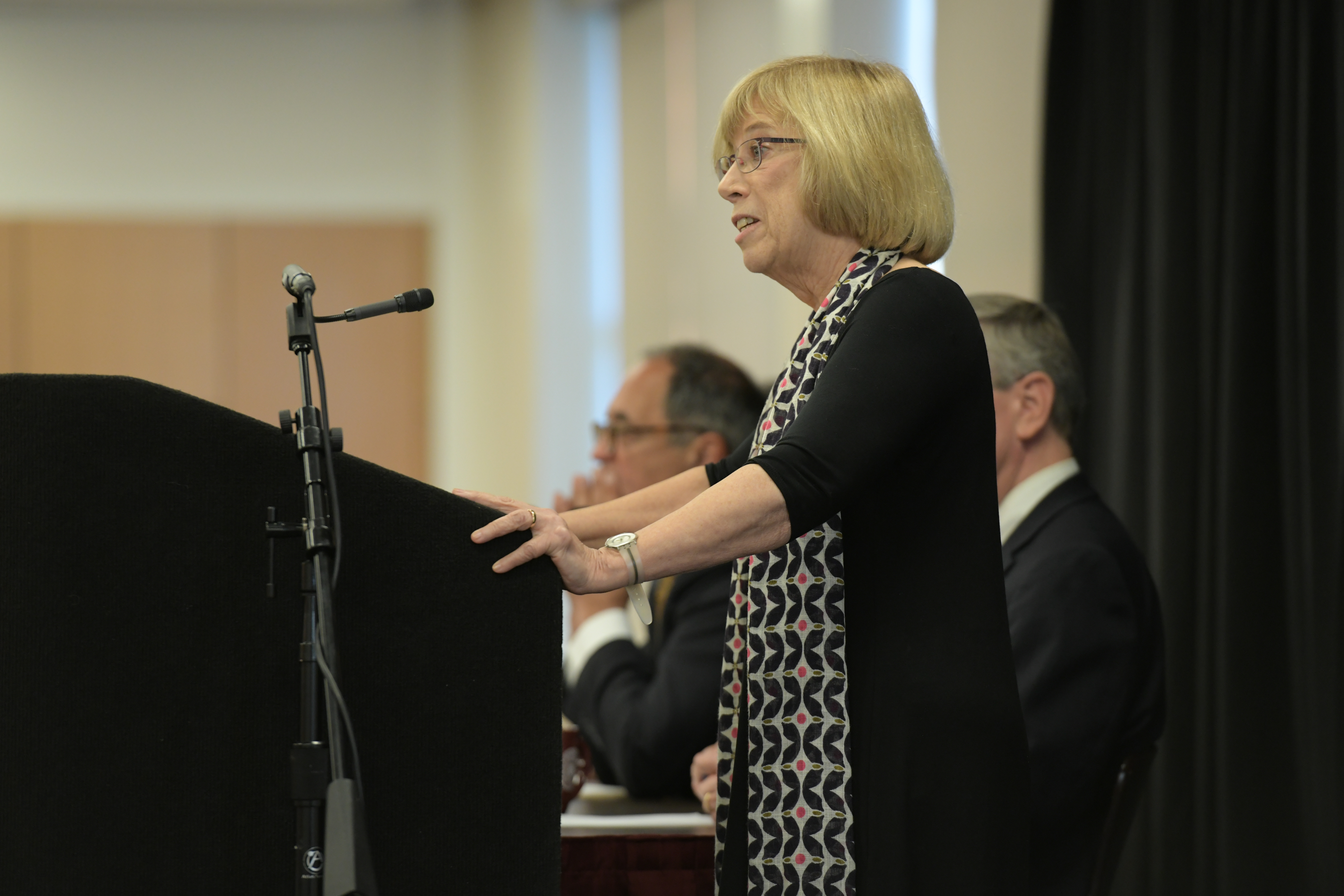
What's Ailing Liberal Democracy?
The School of Civic and Economic Thought and Leadership hosted a panel discussion entitled, "What's Ailing Liberal Democracy? What Tocqueville Can Still Teach Us."
Liberal democracy finds itself in poor health in the first decades of the 21st century. The rise of populism, decaying social cohesion, threats to free speech and anti-immigrant sentiment have raised questions about the future — and even inherent viability — of democratic liberalism.
This event explored this apparent decline in democratic liberalism, including its effects on civility, through the lens of Alexis de Tocqueville.
Tocqueville’s writings have long provided political theorists, historians and sociologists with rich resources on the characteristics of and threats to liberal democracy, as well as possible remedies for the very ills that so often plague it.
His thought has seen a resurgence of interest in recent decades, addressing contemporary topics as diverse as post-Soviet civil society to modern empire to religion and politics.
Panelists
Patrick J. Deneen is a professor of political science and holds the David A. Potenziani Memorial Chair of Constitutional Studies at the University of Notre Dame. Prior to joining the faculty of Notre Dame in 2012, he taught at Princeton University (1997-2005) and Georgetown University (2005-2012), where he held the Markos and Eleni Tsakapoulos-Kounalakis Chair in Hellenic Studies. From 2005-2007 he served as principle speechwriter and special assistant to the director of the U.S. Information Agency, Joseph Duffey. Deneen's intellectual interests and publications are ranging, including ancient political thought, American political thought, religion and politics and literature and politics. He has written four books and edited three others. His books include " The Odyssey of Political Theory, Democratic Faith, Conserving America?," and most recently, "Why Liberalism Failed," which appeared in January, 2018, with Yale University Press. In addition to academic work, he frequently writes for journals of opinion, including First Things, The American Conservative, The Weekly Standard, The Chronicle of Higher Education and Commonweal.
Joshua Mitchell is currently professor of political theory at Georgetown University. He has been chairman of the Government Department, and also associate dean of faculty affairs at SFS-Q. During the 2008-10 academic years, Mitchell took leave from Georgetown and was the acting chancellor of The American University of Iraq — Sulaimani. His research interest lies in the relationship between political thought and theology in the West. He has published articles in The Review of Politics, The Journal of Politics, The Journal of Religion, APSR, Political Theory and Critical Review. In 1993 his book, "Not by Reason Alone: Religion, History and Identity in Early Modern Political Thought," was published by the University of Chicago Press. A second book, "The Fragility of Freedom: Tocqueville on Religion, Democracy, and American Future," was published in 1995, also by the University of Chicago Press. "Plato's Fable: On the Mortal Condition in Shadowy Times," was published by Princeton University Press in 2006. His most recent book, "Tocqueville in Arabia: Dilemmas in the Democratic Age," was published by the University of Chicago Press in 2013. He is currently working on a book manuscript entitled “The Politics of Guilt and the Politics of Hope.”
Cheryl Welch is a senior lecturer and director of undergraduate studies in the Harvard Department of Government. Her teaching and research interests are in the areas of the history of political thought (especially 19th century France), liberal and democratic theory, and the history of human rights. She is the author of "Liberty and Utility: The French Idéologues and the Transformation of Liberalism"(1984) and "De Tocqueville"(2001), the editor of "Critical Issues in Social Theory" (with M. Milgate, 1989) and "The Cambridge Companion to Tocqueville" (2006). Welch has also published numerous articles on liberalism, on utilitarianism and on the works of Alexis de Tocqueville. She is currently working on two projects: a short book on Tocqueville and 21st century politics and a study of the fate of utilitarianism in 19th and 20th century francophone thought.
Paul A. Rahe is a historian, writer and professor of history at Hillsdale College. He taught at Yale University, Cornell University, Franklin and Marshall College, and the University of Tulsa before taking up his present position. Rahe comments with some frequency on political matters and blogs with some regularity for Ricochet. He is the author of "The Grand Strategy of Classical Sparta: The Persian Challenge," "Montesquieu and the Logic of Liberty: War, Religion, Commerce, Climate, Terrain, Technology, Uneasiness of Mind, the Spirit of Political Vigilance, and the Foundations of the Modern Republic," and "The Spartan Regime: Its Character, Origins, and Grand Strategy."